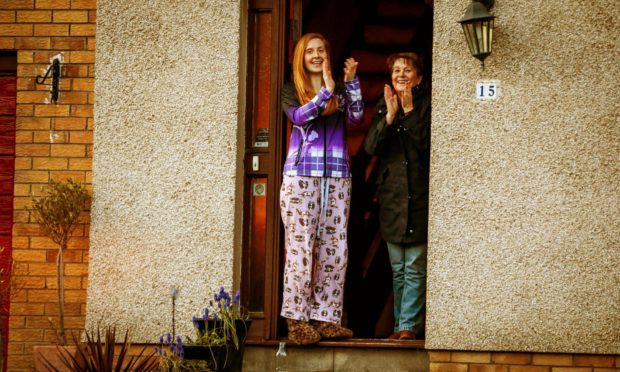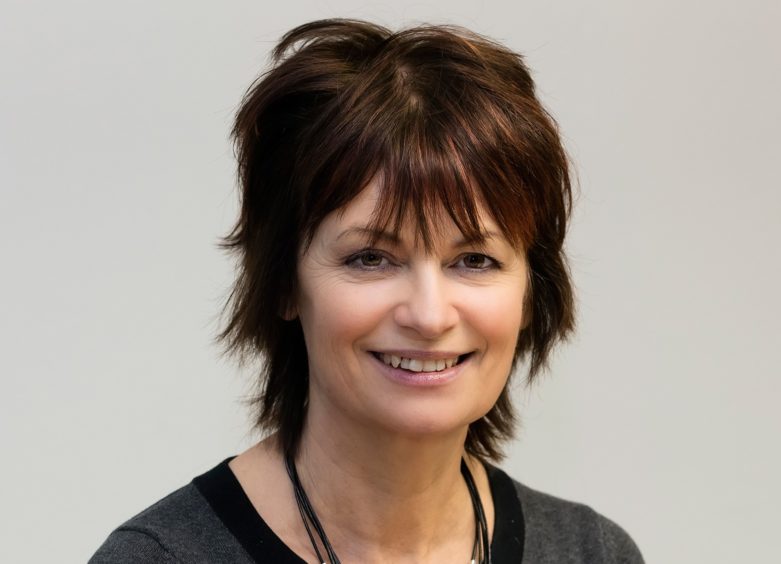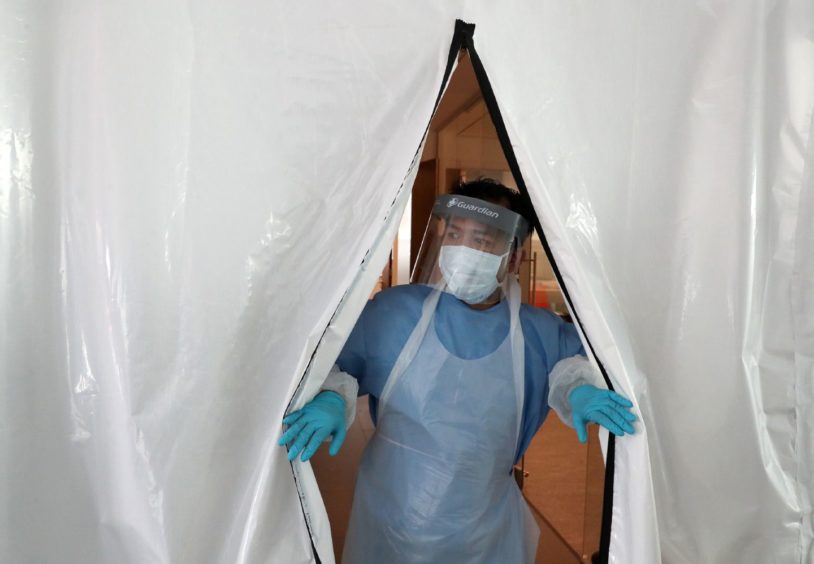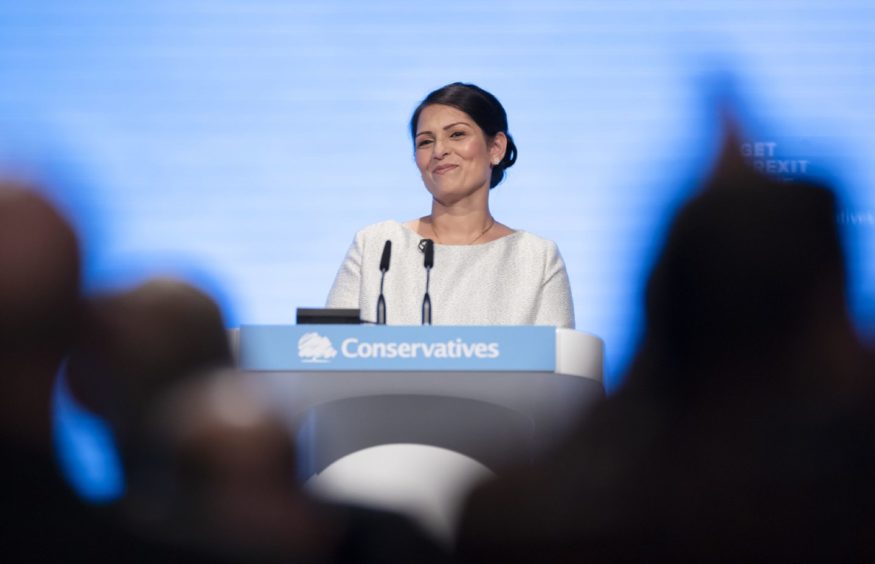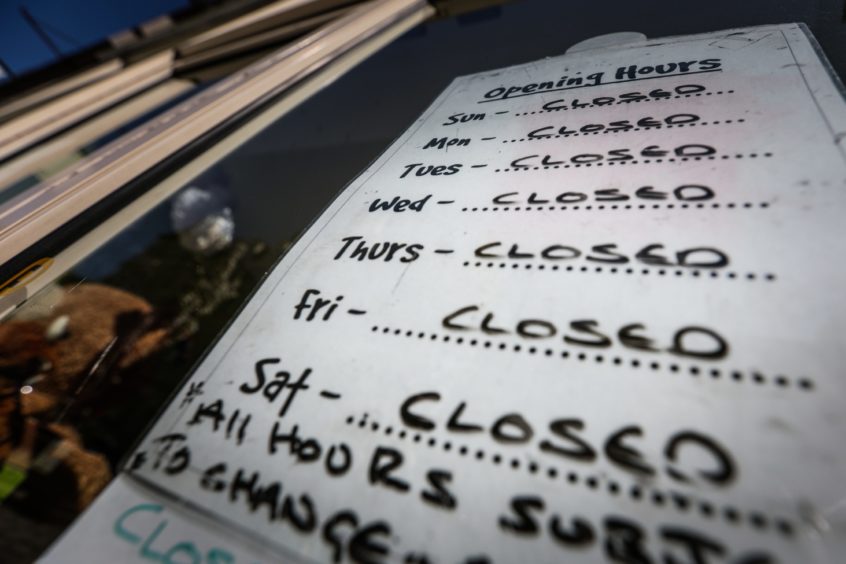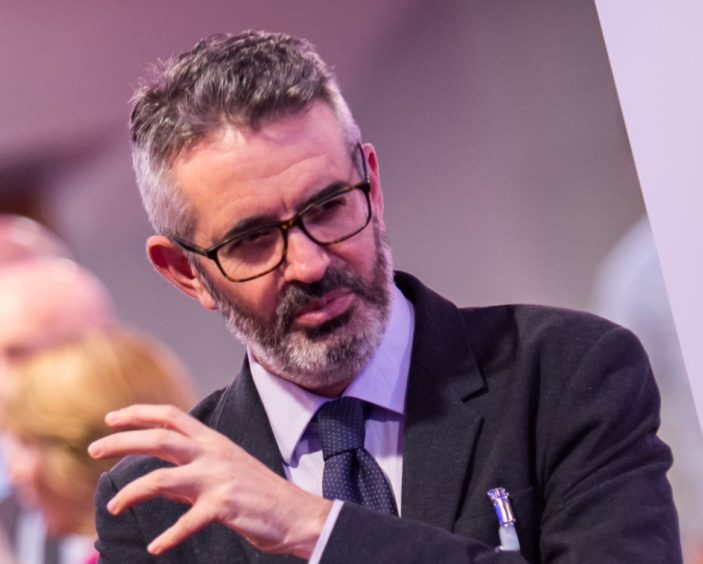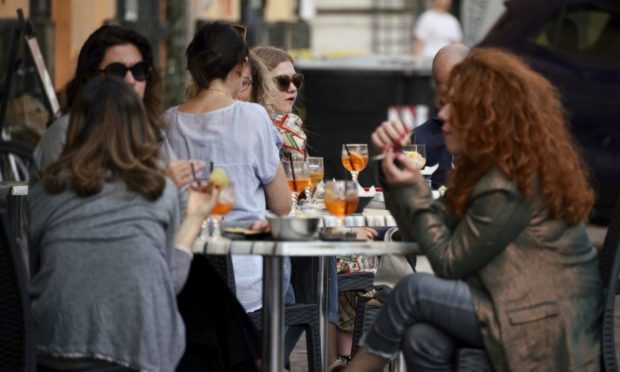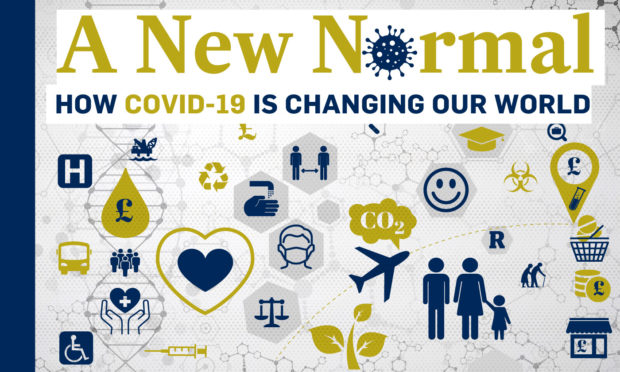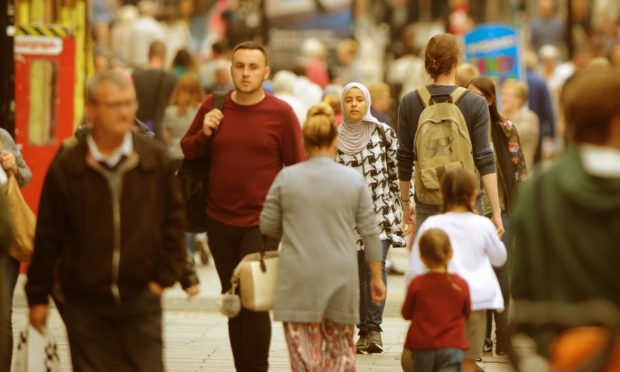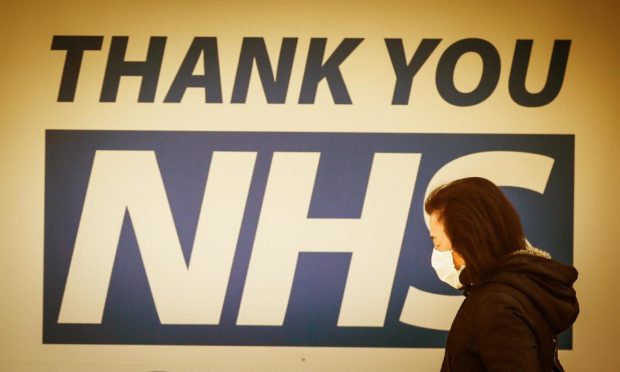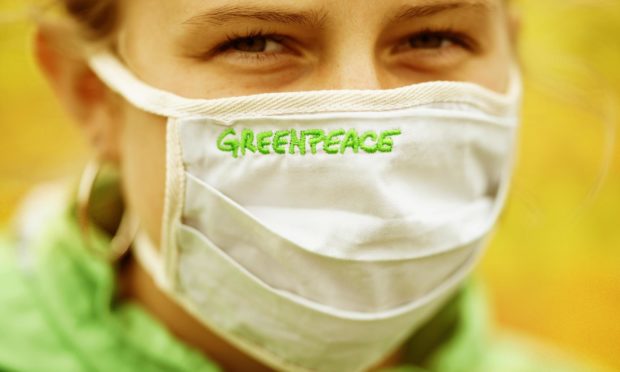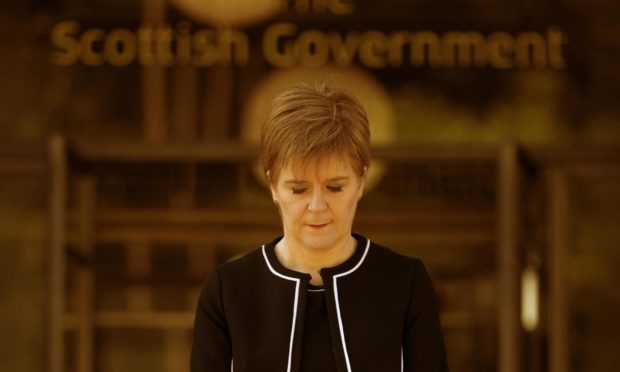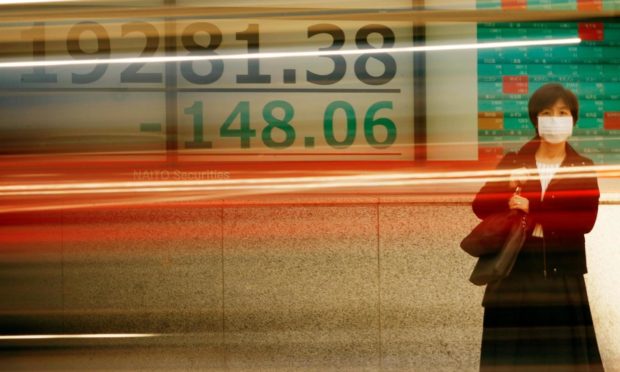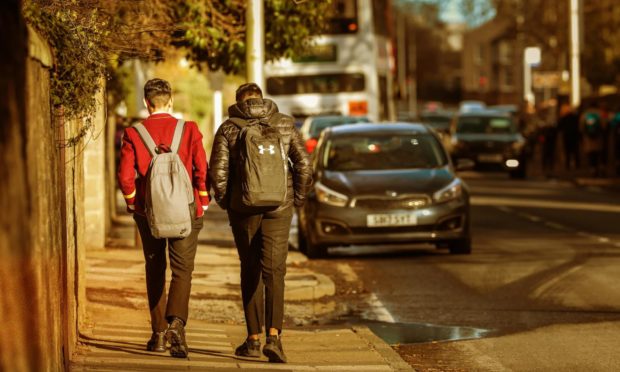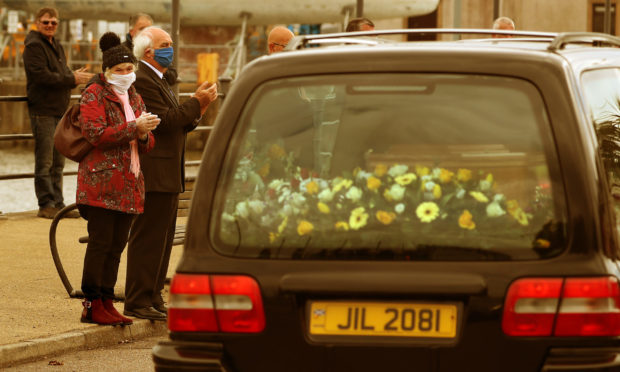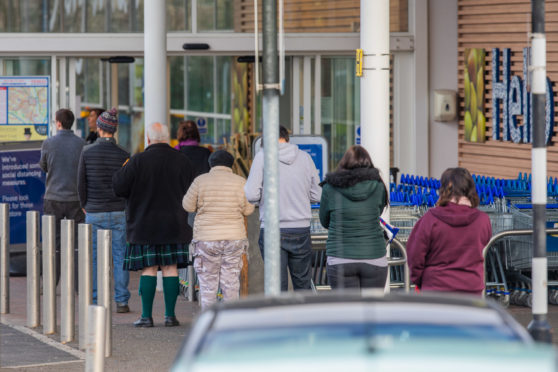Hands are clapped and saucepans banged across the country once a week in appreciation of key workers.
It has quickly become an established tradition but there will almost certainly come a time, as the immediate crisis eases, when this token of society’s gratitude dwindles.
What hope it might be replaced with a more concrete reward for those we have come to recognise as doing work that matters deeply to our collective wellbeing, something that makes their own lives rather more comfortable too?

That is something Professor Dame Anne Glover, president of the Royal Society of Scotland and former chief scientific adviser for Scotland, is keen to explore.
She has been appointed chair of the Post-Covid-19 Futures Commission – to help guide Scotland as it emerges from the pandemic.
In a wide-ranging interview for this series, the leading molecular biologist said in part its aim is to help build a “more resilient and fairer society” after the pandemic.
She said: “We thought that now was the right time to plan ahead for that and to try to bring together people from across different aspects of society in Scotland in order to map out what possible futures there might be and how we can go about delivering them.
“We didn’t really want to consider an option of returning to business as usual. What we wanted was better than usual in the future.”
Prof Glover said she believes the crisis has exposed some of society’s problems, stating she would like to see Scotland move towards a more “inclusive economy” that values individuals for the contribution they make to society.
During the weekly Clap for Carers every Thursday, the scientist said she has been personally struck by the sacrifice of those “putting themselves at risk” for the rest of society but admits it does make her feel “uncomfortable”.
She added: “There are two people who work in the NHS who live directly opposite me.
“The first week I was just so grateful that they put themselves at risk on behalf of the rest of us but the more you think about, and I’m just speaking personally here, the more uncomfortable I feel, because I’m just thinking of people that work in the caring sector, people in transport and first responders, police service and so on.
“And sometimes people who we have not historically valued well in society are carrying the burden of this for the rest of us and I think it can’t be right.
“If we talk about how we value people, nurses, porters, auxiliaries, as well as doctors in the NHS, then my feeling is I’d be very unhappy to go back to a situation where it’s business as usual.
“They are not awarded appropriately for the contribution they make to society.
“When you look at the horrific death toll that we have not just in Scotland, but the UK and across the world, of these deaths that have happened because of coronavirus and the substantial change to our lives that we’ve all had to adapt to, then I think it makes you focus in on what’s really important and what really isn’t.
“I think, for me, a fairer society but one that is more resilient to shocks like this because we will get similar shocks again, whatever the cause might be, and we need to be able to respond as well as we possibly can next time it happens.”
And sometimes people who we have not historically valued well in society are carrying the burden of this for the rest of us and I think it can’t be right.”
Professor Dame Anne Glover
The trade union movement has also been vocal in calling for key workers, including carers, to be “fairly rewarded” for their contribution to society, and has demanded they receive an immediate £2 an hour rise.
Unite Scottish Secretary Pat Rafferty said: “The Covid-19 pandemic has highlighted that essential workers such as bus drivers, transportation workers, cleaners, carers, and those working in wider public health have been absolutely critical to saving lives, and keeping our country moving.
“Unite Scotland believes that companies and public bodies including the Scottish Government owe a debt of gratitude to these workers on the frontline.
“This must be reflected going forward in how they are valued by society, which includes being fairly rewarded not on a one-off basis but consistently.
“It’s vital that the issue of historic low pay is addressed in a number of areas in our economy.
“Unite, along with the whole trade union movement, is therefore asking for an immediate £2 an hour rise for all key workers which includes carers.”
This must be reflected going forward in how they are valued by society which includes being fairly rewarded not on a one-off basis but consistently.”
Pat Rafferty, Unite Scottish Secretary
Donald Macaskill, CEO of Scottish Care, the representative body for the independent care sector, said the optimist in him would like to consider that people who do jobs that are close to people and build the humanity of a person are worth more in society’s estimation and value than whose whose jobs are “close to money”.
But he added: “I very much doubt that, after we get back to normal, the sacrifices and skills of our frontline carers will be remembered.
“Before all this broke I was talking an awful lot about the fact the Home Secretary described social care frontline workers as being low skilled in terms of proposed immigration policies.
“A test of change will be whether we as a society remember the skill and professionalism of frontline carers and drop those crazy immigration proposals but I suspect, just as politicians have very short-term memories, when the public gets back to the routines we will forget what has happened in social care.”
I very much doubt that after we get back to normal that the sacrifices and skills of our frontline carers will be remembered.”
Donald Macaskill
Home Secretary Priti Patel said the government’s plans will lead to a “high skilled economy” but critics have highlighted that the coronavirus pandemic will change public attitudes towards those considered “unskilled”.
Mr Macaskill has been among the voices speaking out against the proposals, arguing it was “offensive” and “damaging” to treat crucial care workers as unskilled.
But a Home Office spokeswoman said this “historic piece of legislation” will give the whole of the UK control of its immigration system for the “first time in decades”.
She added: “Carers provide essential support for our friends and families, and the long-term solution is investment in those delivering high-quality care.
“Senior care workers would meet the criteria to come in through the points-based system.
“As the independent Migration Advisory Committee identified in its own report, immigration is not the sole solution to employment issues in this sector.”
A more inclusive economy?
In terms of what successes Prof Glover would like to see as a result of the newly formed commission, she puts a more “inclusive” economy front and centre in her vision for the future.
She said: “I would want to see an economy that was inclusive in Scotland, where everybody was rewarded fairly for what they did and how they contributed and that we work together to address what will be real pressures in our economy around unemployment, some businesses will have failed and so on.
“With all the will in the world, no matter how much government support there is to keep businesses afloat, some will fail and so how do we ensure that kind of restructuring of the economy to value particularly people’s innovation.”
At a Scottish Government level, £3.8 billion in additional funds has been committed to tackling inequalities, which includes investment for the NHS and £2.3 billion for businesses to support continuing employment.
A £350 million package to support those most at risk includes more than doubling its Scottish Welfare Fund and £125m for third sector and community efforts.
Peter Kelly, director of the Poverty Alliance, a network of organisations and individuals working together to end poverty, said that support for redesigning the economy will be “greater than ever” in a post-pandemic context.
He said: “Since the start of the Covid-19 crisis, we have witnessed in action the values that we all share.
“We have seen the compassion, kindness and solidarity that will be required to make it through this crisis.
“But we have also seen that our economy is failing to live up to these values.
“Our social security system and labour market have failed to protect too many of us: particularly women, disabled people and people from black and minority ethnic communities.
AUDIO: Listen to the ‘New Normal’ series writers discuss their findings in this special Stooshie podcast
“We believe that support for redesigning our economy will be greater than ever, as more and more people see what it’s like to live on a low income in our society.
“Instead of returning to the economy we had going into the Covid-19 crisis, we must build back better.
“We have called on the First Minister to ensure that the Scottish Government’s recovery plans focus on building a labour market that works for everyone, designing a more just taxation system and ensuring that everyone has an income that meets their needs.”
